 More of the Music of Sonny Rollins
More of the Music of Sonny Rollins
More Records Mastered by Doug Sax
Longstanding customers know that we have been relentlessly critical of most audiophile LPs for years, especially in the case of these Analogue Productions releases from back in the early ’90s. A well-known reviewer loved them, I hated them, and he and I haven’t seen eye to eye on much since.
(Old) Newflash!
Just dug up part of my old commentary discussing the faults with the original series that Doug Sax cut for Acoustic Sounds. Check it out.
In the listing for the OJC pressing of Way Out West we wrote:
Guaranteed better than any 33 rpm 180 gram version ever made, or your money back! (Of course I’m referring to a certain pressing from the early ’90s mastered by Doug Sax, which is a textbook example of murky, tubby, flabby sound. Too many bad tubes in the chain? Who knows?
This OJC version also has its problems, but at least the shortcomings of the OJC are tolerable. Who can sit through a pressing that’s so thick and lifeless it communicates none of the player’s love for the music? If you have midrangy transistor equipment, go with the 180 gram version (at twice the price). If you have good equipment, go with this one.
[We are no longer fans of the OJC of Way Out West, and would never sell a record that sounds the way even the best copies do as a Hot Stamper. It’s not hopeless the way the Heavy Vinyl pressing is, but it’s not very good either. It’s yet another example of a record we was wrong about. Live and learn, right?]
The following commentary comes from our catalog from the mid- to late-90s, back when I could still find great jazz records like the Alternate Takes album I discuss below. Note that the AP records were in print at the time.
Acoustic Sounds had just remastered and ruined a big batch of famous jazz records, and shortly thereafter a certain writer in TAS had said nice things about them.
Said writer and I got into a war of words over these records, long, long ago. You’ll notice that no one ever mentions these awful records anymore, and for good reason: they suck. If you own any of them, do yourself a favor and get either the CD or a good LP for comparison purposes. I expect you will hear what I’m talking about.
In my essay on reviewers I attack him for giving a big “Thumbs Up” in TAS to the botched remastering of Sonny’s Way Out West. The OJC reissue, though superior, is still only a pale shadow of the original.
Now we have the real thing! This LP has three alternate takes from that session, all mastered by George Horn, and surprise, surprise, surprise, they sound just like my original, much better than (but not so different from) the OJC, and worlds away from the muted flab of the Analogue Productions LP!
Anyone who owns a representative sample of records engineered by Roy Dunann knows that the overly sweet, delicate sound of the cymbals on the Analogue Productions Way Out West is unusual — if not positively unheard of — for him. His cymbal sound is lively, aggressive, with much more “splash” — more impact, more presence.
These “live music” qualities have been equalized out on the remastering and other patently euphonic qualities equalized in.
Anyway, the important thing is not the sound I or some reviewer or anybody else likes. It’s what you like that counts.
With that in mind, I’m so sure you’ll prefer the sound of Alternate Takes, that you’ll recognize and appreciate the differences I’m talking about, that I’m willing to make you this very special offer:
If Alternate Takes isn’t about the best sounding jazz record you ever heard, send it back to me and I’ll give you $30 toward anything else in the catalog! If you own any Analogue Productions LP, mail or fax me a copy of your receipt (along with your order) and I will give you a better sounding jazz record free as a bonus!
If you don’t own the AP Way Out West, call Chad up and order it. You really owe it to yourself to hear this mess! What have you got to lose? Acoustic Sounds offers a money-back guarantee. They say “guaranteed better than the original.”
What they don’t say is “guaranteed better than a plain old everyday standard-issue domestic copy which is still available from that pain-in-the-ass Tom Port over at Better Records” — because it’s not (better, although it may be still available)!
Robert Brook discovered a killer Way Out West not long ago which caused the heavens to open up and angels to sing. I know exactly what he talking about. It’s happened to me more times than I can remember. Lately our main listening guy, who goes by the initials RS, has had close encounters with equally amazing sounding recordings.
Robert Brook’s story:
We added some thoughts of our own in this commentary:
We think both are worth reading.
Now Back to Our More Recent Commentary
Hey, here’s a question for you. When was the last time you read a word about those Heavy Vinyl pressings, so incompetently mastered by Doug Sax. With no real presence and bloated bass, they’re pure audiophile “smile curve” trash of the worst kind.
They’ve rather fallen from favor, have they not? I wonder why. Could it be that they were as ridiculously bad as I said they were back in 1995, and it just took the rest of the world a little longer to recognize that fact? Perhaps audiophiles are making progress. It’s just taking them a long, long time. Hey, it took me a long, long time, so who am I to talk?
[This prediction turned out to be way off the mark. If anything, the remastered records being made today sound worse than ever.]
No doubt most audiophiles and the reviewers who write for them think that making records the “right” way should result in better sound, but we have found precious little evidence to back up that theory, and volumes of evidence to refute it.
Yes, those Analogue Productions records sucked, they continue to suck, and they will always suck. The “audiophile” records of that day did lack presence, and the passage of time is not going to change that fact. Play practically any Reference, Chesky or Classic title from 1995 to the present and listen for the veiled midrange, the opacity, the smeary transients, and the generally constricted, compressed, lifeless quality of its sound, a sound that has been boring us to tears for close to two decades, and fundamentally undermining the very rationale for the expense and hassle of analog itself in the modern digital age, a much more serious charge.
(more…)
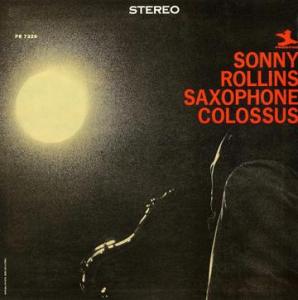
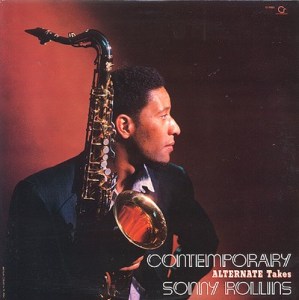
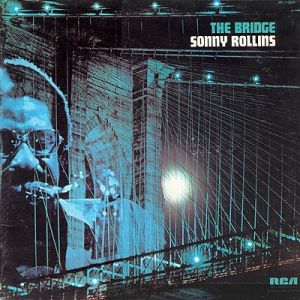
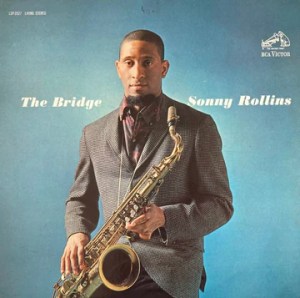
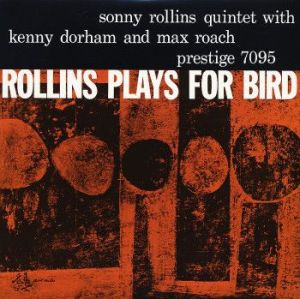
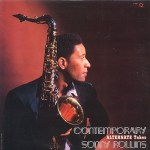

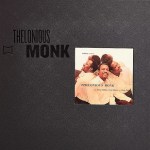 More of the Music of Thelonious Monk
More of the Music of Thelonious Monk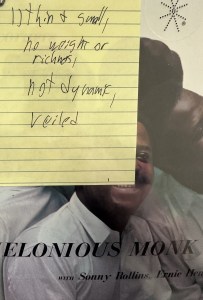
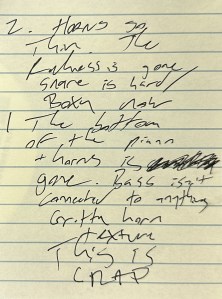
 More of the Music of Sonny Rollins
More of the Music of Sonny Rollins